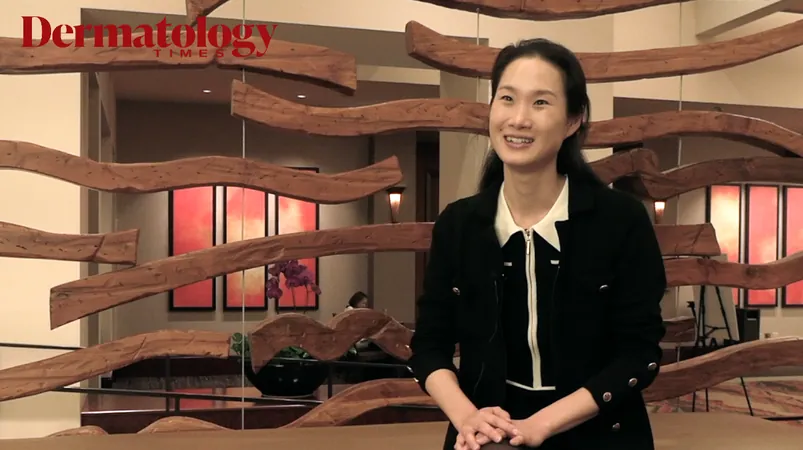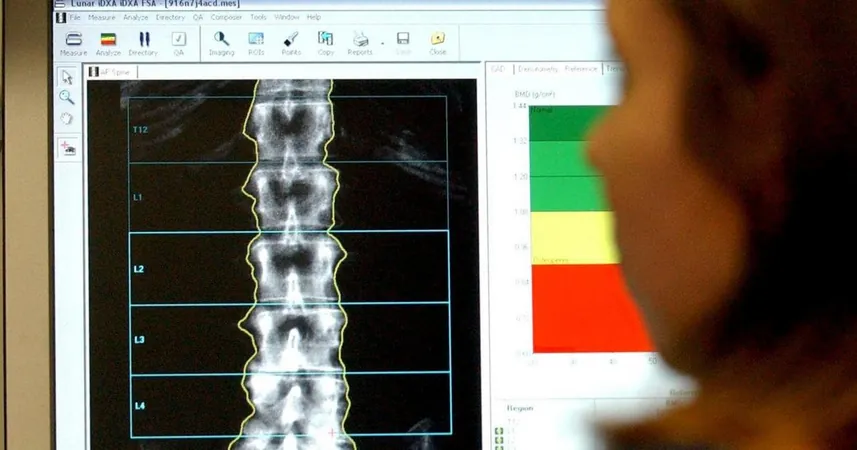
Revolutionary Insights: How Diet and New Treatments are Transforming Hidradenitis Suppurativa Care
2024-11-09
Author: Wei
The Connection Between Diet and HS: What You Need to Know
Dr. Hsiao's presentation emphasized the current understanding of the relationship between diet and HS, which, while still evolving, highlights the Mediterranean diet as potentially beneficial for patients. The Mediterranean diet, rich in leafy greens and low glycemic index foods, promotes better health outcomes; however, Dr. Hsiao cautioned about setting unrealistic dietary goals for patients. It's crucial to remember that dietary management is a part of a larger picture, making it essential to work closely with patients to ensure sustainable changes.
"When advising patients, I stress that while it's beneficial to limit high glycemic index foods, enjoying cake on special occasions is perfectly acceptable," Dr. Hsiao noted. She underscored that while dietary changes can aid in symptom management, many patients still require more intensive treatments.
New Horizons in Treatment Options
Dr. Hsiao elaborated on the therapeutic landscape for HS, which includes a diverse range of options. Topicals, hormonal modulators, and oral antibiotics are part of the standard arsenal, but the real game-changers are biologics and small molecule inhibitors, which have revolutionized treatment in recent years. Currently, adalimumab and secukinumab are FDA approved, and there is optimism surrounding the upcoming approval of bimekizumab along with potential JAK inhibitors and BTK inhibitors, providing more oral options for patients.
Crucially, early diagnosis is imperative. Dr. Hsiao pointed out, “If a patient presents with nodules or abscesses in areas prone to friction, HS should be suspected." Awareness that HS can manifest in non-traditional areas is vital for accurate diagnosis and effective treatment.
Embracing a Multimodal Treatment Approach
Combination therapy is a cornerstone of managing HS effectively. Dr. Hsiao advocates a multimodal approach that could involve combining medications like spironolactone with biologics or implementing surgical interventions for complex cases. "Surgical procedures still play a critical role in HS management, especially when medications alone cannot mitigate extensive tunnels,” she said, highlighting the profound impact that surgical excision can have on patients' quality of life.
The Future of HS Treatment: Precision Medicine and Clinical Trials
Looking to the future, Dr. Hsiao hopes that advancements in precision medicine will enable earlier diagnosis and treatment, thereby potentially altering the disease trajectory for patients. With over 40 active clinical trials aimed at HS, the prospects for new therapies and interventions appear promising. Dr. Hsiao expressed her enthusiasm: “I am thrilled about the variety of upcoming treatments. The goal is to equip each patient with safe and effective options, allowing them to re-engage with their healthcare.”
With these exciting developments at the forefront, patients are encouraged to remain hopeful. Innovations in diet, therapeutic strategies, and ongoing research create a decade of potential breakthroughs for those living with Hidradenitis Suppurativa. Stay tuned as we follow Dr. Hsiao and her colleagues in this essential quest for better care and quality of life for HS patients!

 Brasil (PT)
Brasil (PT)
 Canada (EN)
Canada (EN)
 Chile (ES)
Chile (ES)
 España (ES)
España (ES)
 France (FR)
France (FR)
 Hong Kong (EN)
Hong Kong (EN)
 Italia (IT)
Italia (IT)
 日本 (JA)
日本 (JA)
 Magyarország (HU)
Magyarország (HU)
 Norge (NO)
Norge (NO)
 Polska (PL)
Polska (PL)
 Schweiz (DE)
Schweiz (DE)
 Singapore (EN)
Singapore (EN)
 Sverige (SV)
Sverige (SV)
 Suomi (FI)
Suomi (FI)
 Türkiye (TR)
Türkiye (TR)